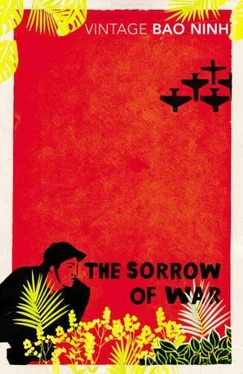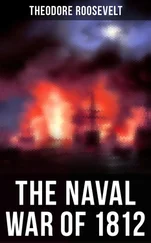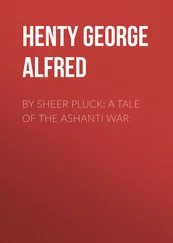The whole night long I reviewed the life of my scout platoon. Each day, each memory, each person, appeared on a separate page of the dream. At last there was the scene by the stream where the whole scout platoon gathered around ‘Lofty’ Thinh’s grave, the afternoon before we left for a major battle in the Central Highlands.
‘Thinh, you stay here in the forest. We’re leaving to fight a battle,’ I heard my voice echoing from that afternoon. On behalf of the whole platoon I said farewell to Thinh’s soul.
‘From the depths of the earth, dear friend, please listen to your mates and give your blessing to us as we now must fight and break through the enemies’ lines. Please listen for the sounds of our guns. Your mates will shake sky and earth with the guns to avenge your death,’ the prayer concluded.
Oh my lost years and months and days! My lost era! My lost generation!
Another night with bitter tears wetting the pillow.
Another night, also in a dream, I saw pretty Hoa in the Screaming Souls Jungle. She’d been born in Hai Hau in 1949, but killed a long way from home in 1968, when not even twenty. Hoa’s story was part of my mental war films, but somehow buried along with many others until now.
We were only able to meet for a moment in my dream, a passing glance at each other. In the thick mist of the dream I could only see Hoa vaguely, far away. But I felt a passionate love and a grieving intimacy I’d not felt for her at the time of our traumatic, violent parting after Second Tet in 1968. During our brief time together I’d only felt a shameful impotence, a feeling of defeat and desperate exhaustion.
For the entire night I floated in the sea of suffering called Mau Than, the tragic year of 1968. When I awoke it was almost dawn yet the dream images were then transferred to my waking hours: Hoa fallen in a grassy plot in the jungle, the American troops rushing towards her, then surrounding her, like bare-chested apes, puffing and panting, grabbing her, breathing heavily over her body. My throat still hurt from screaming during the nightmare, my lips were bleeding, the buttons of my pyjama coat had been ripped off, my chest was deeply scratched and my heart beat painfully, as though I were in danger, not our courageous Hoa.
Since returning to Hanoi I’ve had to live with this parade of horrific memories, day after day, long night after long night. For how many years now?
For how many more years?
Often in the middle of a busy street, in broad daylight, I’ve suddenly become lost in a daydream. On smelling the stink of rotten meat I’ve suddenly imagined I was back crossing Hamburger Hill in 1972, walking over strewn corpses. The stench of death is often so overpowering I have to stop in the middle of the pavement, holding my nose, while startled, suspicious people step around me, avoiding my mad stare.
In my bedroom, on many nights the helicopters attack overhead. The dreaded whump-whump-whump of their rotor blades bringing horror for us in the field. I curl up in defence against the expected vapour-streak and the howling of their rockets.
But the whump-whump-whump continues without the attack, and the helicopter images dissolve, and I see in its place a ceiling fan. Whump-whump-whump.
I am watching a US war movie with scenes of American soldiers yelling as they launch themselves into combat on the TV screen and once again I’m ready to jump in and mix it in the fiery scene of blood, mad killing and brutality that warps soul and personality. The thirst for killing, the cruelty, the animal psychology, the evil desperation. I sit dizzied, shocked by the barbarous excitement of reliving close combat with bayonets and rifle-butts. My heart beats rapidly as I stare at the dark corners of the room where ghost soldiers emerge, shredded with gaping wounds.
My life seems little different from that of a sampan pushed upstream towards the past. The future lied to us, there long ago in the past. There is no new life, no new era, nor is it hope for a beautiful future that now drives me on, but rather the opposite. The hope is contained in the beautiful pre-war past.
The tragedies of the war years have bequeathed to my soul the spiritual strength that allows me to escape the infinite present. The little trust and will to live that remains stems not from my illusions but from the power of my recall.
Still, even in the midst of my reminiscences I can’t avoid admitting there seems little left for me to hope for. From my life before soldiering there remains sadly little. That wonderful period has been heartlessly extinguished. The lucky star of fortune I once had seems also to be gone forever. It once shone brightly, but quickly burnt out. The aura of hope in those early post-war days swiftly faded.
Those who survived continue to live. But that will has gone, that burning will which was once Vietnam’s salvation. Where is the reward of enlightenment due to us for attaining our sacred war goals? Our history-making efforts for the great generations have been to no avail. What’s so different here and now from the vulgar and cruel life we all experienced during the war?
Even me, I’m nearly forty. I was eighteen at the start of the war in 1965, twenty-eight at the fall of Saigon in 1975. So, how many long years have passed? Ten or eleven? Twelve. No. Thirteen? Another year with the MIA team. Or was it longer? And more time wandering as a Veteran. Closer to fourteen years lost because of the war.
And me already forty. An age I once thought distant, strange, somehow unattainable.
From the horizon of the distant past an immense sad wind, like an endless sorrow, gusts and blows through the cities, through the villages, and through my life.
Kien lays his pen down. He turns off the table lamp, pushes his chair away, stands up and silently walks to the window. It is very cold in the room, yet he feels hot and breathless. He is uneasy, as though he feels a violent summer thunderstorm approaching, heralded by gusts of alternately hot and cold air.
So bitter is his frustration that he feels his pen takes him closer at first and then more distant from what he wishes to say.
Every evening, before sitting at his desk and opening his manuscript, he tries to generate the appropriate atmosphere, the right feelings. He tries to separate each problem, the problem of paragraphs and pages, wishing to finish them in a specific way and by a specific time. He plans the sequences in his mind. What his heroes will do and what they will say in particular circumstances. How they’ll meet, how they’ll part. He lays the design of this out in his mind before taking up his pen.
But the act of writing blurs his neat designs, finally washing them away altogether, or blurs them so the lines become inter-mixed and sequences lose their order.
Upon rereading the manuscript he is astounded, then terrified, to read that his hero from a previous page has, on this page, disintegrated. Worse, that his heroes are inconsistent and contradictory, and make him uneasy. The more uneasy he feels the quicker the task at hand slides from his mind.
On some nights, he energetically follows a certain line, pursuing it sentence by sentence, page by page, building it into a substantial work. He wrestles with it, becomes consumed by it, then in a flash sees it is all irrelevant. Standing back from it he then sees no value in the frantic work, for the story-line stands beyond that circled arena of his soul, that little secret area which we all know intuitively contains our spiritual reserves.
Kien seems to write only to rid himself of his devils. Neither the torment of regret brought on by wasted writing efforts, nor the loss of his health, can overcome his urgent desire to be a perfectionist. The threat of being pinned to his writing-desk for great lengths of time similarly does not concern him. He continues his quest for perfection, crossing out, erasing, crossing out again, editing, tearing up some pages, then tearing up and destroying all. Then he starts over again, making out each syllable like a learner trying to spell a new word.
Читать дальше












